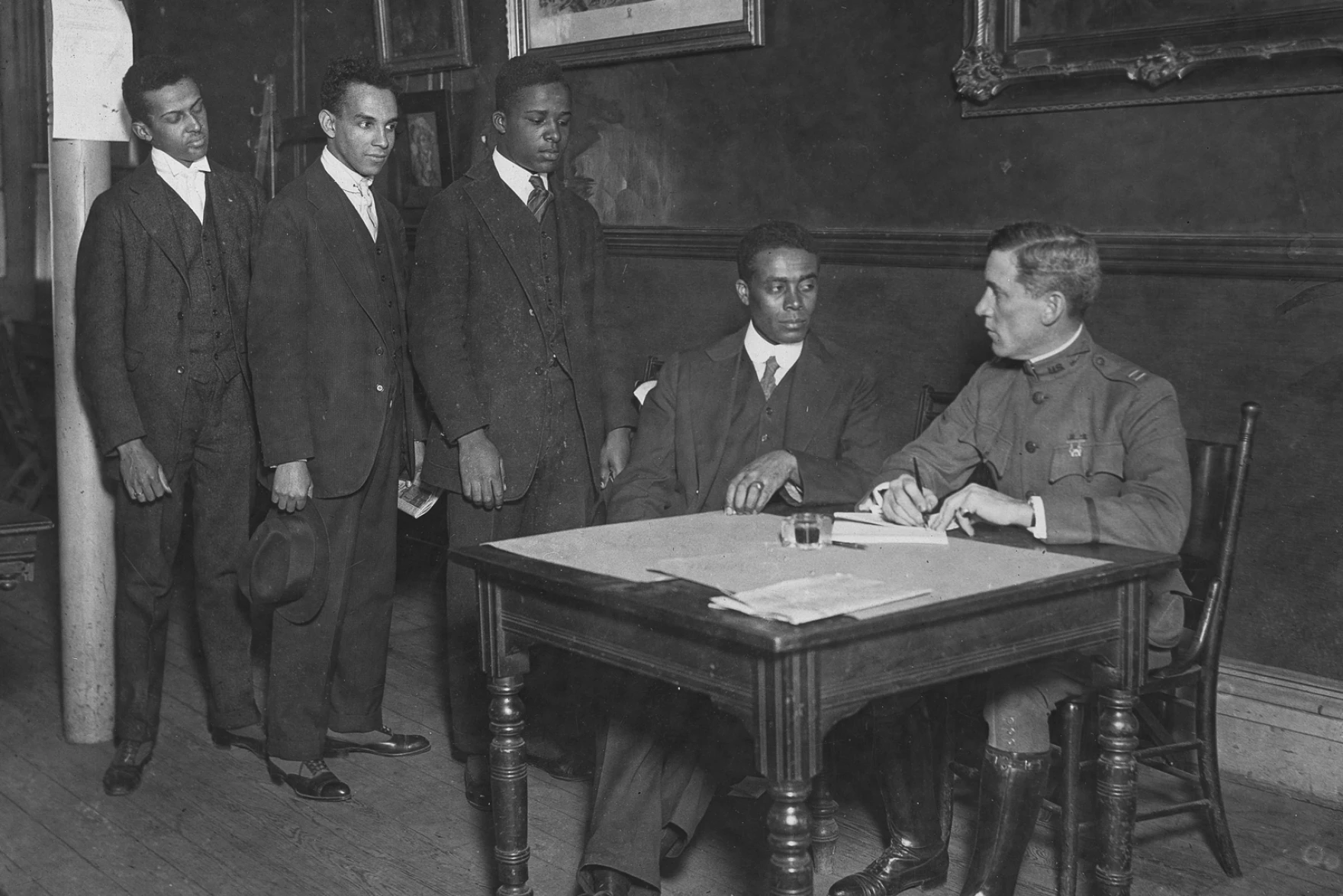New historical marker will honor the first large-scale training of Black military officers
Published: 24 February 2025
By Lucia Cheng
via the Iowa Public Radio website

Fort Des Moines
Black men enlist for the Fort Des Moines' Officer Training Camp.
Historian Don North said he’s got love for three things: history, the military and horses. He could pursue them all as a researcher of African American military history. So when he stumbled across a documentary about Fort Des Moines, he said it was “God sent.”
When the U.S. joined World War I, 1,250 African American college graduates began their training to become military officers. Fort Des Moines became the first — and only — training site for Black officers during the war. North said their significance is on par with that of the Tuskegee Airmen.
During World War II, Fort Des Moines also hosted the Women’s Army Auxiliary Corps. Two of the highest-ranking Black women — Charity Adams and Hariett Waddy —trained there. They were the only Black women with the rank of major, with Adams eventually becoming lieutenant colonel. Waddy urged Black women to enlist, even while segregated, saying it would contribute to the realization of democracy.
“You guys are kind of like the cradle of birthing army officers, right there in Des Moines,” North said.
The State Historical Society of Iowa approved North’s request for a historical marker commemorating the officers’ leadership, with the women’s marker going up on the other side of the site. The men’s marker will be unveiled at a ceremony in June, with the women’s going up at a later date.
The first and only training site for Black officers

African American officers from the 5th Provisional Company pose in front of a building at the Fort Des Moines Provisional Army Officer Training School in 1917.
Howard University in Washington, D.C., originally volunteered to be the training site. However, government officials were concerned that the training effort would fail and isolated the training to the remote base in Iowa.
“The U.S. Army did not believe that African Americans were intelligent enough to lead and command military units in war,” North said.
To qualify for the program, trainees were required to have college degrees. While officers typically require a four-year degree today, back then, it was not the norm.
North said having a college education meant the country’s best men were trained as leaders. Becoming an officer, he said, would prove that Black men could not be seen as second-class citizens.
Even with leadership training, Black officers could only command Black troops. Researcher Keith King said that the men still faced disrespect from their white colleagues.
“When they came back [from the war], they were not welcomed with a ticker-tape parade and truly saluted,” King said. “And so, when we fast forward to now, I think it’s important that we continue to share their story because we were all benefactors of their sacrifice.”
→ Read the entire article on the IPR website.
External Web Site Notice: This page contains information directly presented from an external source. The terms and conditions of this page may not be the same as those of this website. Click here to read the full disclaimer notice for external web sites. Thank you.



